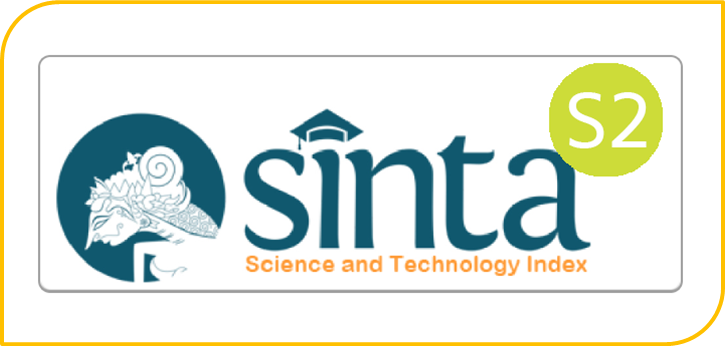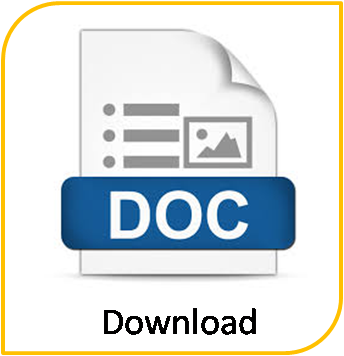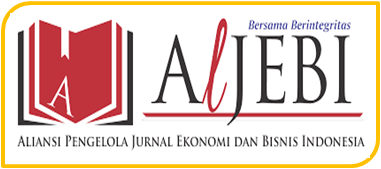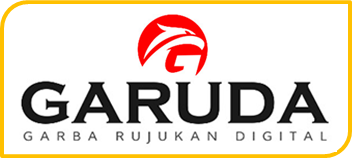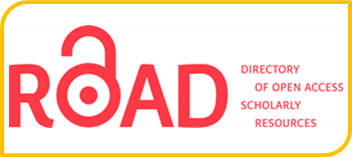APPLICATION OF BLOCKCHAIN AND SMART-CONTRACT ON WAQF ASSET MANAGEMENT: IS IT NECESSARY?
Abstract
Waqf assets are assets that can be utilized for the benefit of the people. Currently, there are many waqf asset management using internet-based Waqf Information Systems. However, the database used by the system is generally centralized, so it is prone to data manipulation. Each waqf entity has its data, causing data differences between waqf entities. This study aims to provide the concept of waqf asset management using Blockchain technology and Smart Contracts. The method is a qualitative analysis method with secondary data from various kinds of literature, study journals, and reports published by the government and related agencies. This study concludes that the concept of waqf asset management based on Blockchain technology and Smart contracts can facilitate the management of waqf assets, both movable and immovable assets. In addition, it can increase data transparency between nadzhir, wakif, and waqf regulators and minimize data manipulation. The role of regulators such as the Ministry of Religion, BWI, and BI is needed to create regulations that support the implementation of waqf management based on Blockchain technology and Smart Contract.
Keywords
Full Text:
PDFReferences
Abozaid, A. (2014). Reforming the methodolgoy of product development in Islamic finance. LAP Lambert Academic, 1–52.
Al Arif, M. N. R. (2012). Wakaf Uang dan Pengaruhnya terhadap Program Pengentasan Kemiskinan di Indonesia. Jurnal Indo-Islamika, 2(1), 17–29. https://doi.org/10.15408/idi.v2i1.1649
Anas, A., & Ryandono, M. N. H. (2017). Wakaf Produktif Dalam Pemberantasan Kemiskinan Melalui Pemberdayaan Ekonomi di Yayasan Nurul Hayat Surabaya. Jurnal Ekonomi Syariah Teori dan Terapan, 4(3), 253. https://doi.org/10.20473/vol4iss20173pp253-267
Arief, L., & Sundara, T. A. (2017). Studi atas Pemanfaatan Blockchain bagi Internet of Things (IoT). Jurnal RESTI (Rekayasa Sistem Dan Teknologi Informasi), 1(1), 70–75. https://doi.org/10.29207/RESTI.V1I1.26
Ashari, F. (2020). Smart Contract and Blockchain for Crowdfunding Platform. International Journal of Advanced Trends in Computer Science and Engineering, 9(3), 3036–3041.
https://doi.org/10.30534/ijatcse/2020/83932020
Ayu, D., Witami, D., & Suartana, W. (2019). Pengaruh Persepsi Kegunaan, Kemudahan Penggunaan dan Risiko Terhadap Minat Mahasiswa Menggunakan Sistem Blockchain. E-Jurnal Akuntansi, 28(2), 1346–1376. https://doi.org/10.24843/EJA.2019.V28.I02.P21
Badan Wakaf Indonesia. (2020). BWI Jajaki Penggunaan Blockchain Dalam Perwakafan Nasional. https://www.bwi.go.id/4748/2020/04/17/bwi-jajaki-penggunaan-blockchain-dalam-perwakafan-nasional/
Bambara, J. J., & Allen, P. R. (2018). A Practical Guide to Developing Business, Law, and Blockchain Technology Solutions. McGraw-Hill Education.
Binus.ac.id. (2021). Perbedaan Blockchain dengan Cryptocurrency. https://sis.binus.ac.id/2021/10/20/perbedaan-blockchain-dengan-cryptocurrency/
Budiantoro, R. A., Wardhani, M. F., Hasanatina, F. H., & Putra, F. I. F. S. (2020). Waqf Blockchain Untuk Pengadaan Alat Kesehatan Penanganan Covid-19: Studi Konseptual. Ziswaf: Jurnal Zakat Dan Wakaf, 7(2), 133–150. https://doi.org/10.21043/Ziswaf.V7I2.7695
Cachin C, & Vucolic M. (2017). Blockchain Consensus Protocols in the Wild. https://arxiv.org/abs/1707.01873
Chiu, J., & Koeppl, T. V. (2018). Blockchain-Based Settlement for Asset Trading. SSRN Electronic Journal. https://doi.org/10.2139/SSRN.3203917
Christidis, K., & Devetsikiotis, M. (2016). Blockchains and Smart Contracts for the Internet of Things. IEEE Access, 4, 2292–2303. https://doi.org/10.1109/ACCESS.2016.2566339
, (2021). Sertifikat Tanah Sudah Elektronik, Ini Penampakannya. Cnbcindonesia.com. https://www.cnbcindonesia.com/news/20210204091048-4-220922/sertifikat-tanah-sudah-elektronik-ini-penampakannya
, (2021). Paruh Pertama 2021, Jumlah Serangan Siber di Indonesia Capai 741,44 Juta, Melebihi Total Serangan Tahun Lalu. Cyberthread.id. https://m.cyberthreat.id/read/12306/Paruh-Pertama-2021-Jumlah-Serangan-Siber-di-Indonesia-Capai-74144-Juta-Melebihi-Total-Serangan-Tahun-Lalu
, (2018). Apa itu Smart Contract - Inilah Panduan Lengkap Smart Contract. digitalis.id. https://digitalis.id/blog/apa-itu-smart-contract-inilah-panduan-lengkap-smart-contract/
Fahmi, A., & Sugiarto, E. (2016). Sistem Informasi Geografis untuk Pengelolaan dan Monitoring Persebaran Aset Wakaf. Techno.Com, 15(4), 327–334. https://doi.org/10.33633/tc.v15i4.1272
Hafiz Bin, M., Fauzi Sofri, H. J., Jalal, Y., Hanaysha, R., Sabri, M., Syaidatun, H., & Abu Zahrin, N. (2019). The impact of trust in cash waqf contribution: a case study of wakaf Selangor muamalat (WSM) service of bank Muamalat Malaysia Berhad (BMMB). Ijbel.Com, 18(2). http://ijbel.com/wp-content/uploads/2019/05/KLIBEL-18_63.pdf
Hanifatunnisa, R. (2017). Perancangan dan Implementasi Sistem Pencatatan e-Voting Berbasis Blockchain. Institut Teknologi Bandung.
Iman, N., Kurniawan, E., & Santoso, A. (2020). Integrasi dan Digitalisasi Sistem Informasi Manajemen Aset Wakaf (Simas Waqfuna). KOMIK (Konferensi Nasional Teknologi Informasi Dan Komputer), 4(1). https://doi.org/10.30865/KOMIK.V4I1.2567
, (2017). Prosedur Wakaf dan Sertifikasinya – Kementerian Agama. https://cilacap.kemenag.go.id/profil/prosedur-wakaf-dan-sertifikasinya/
, (2022). Data Tanah Wakaf. Kementerian Agama http://siwak.kemenag.go.id/index.php
Kholifah, N. (2021). Sifat-Sifat Rasulullah yang Dijadikan Pedoman dalam Berdagang yang Halal. Al-Tsaman : Jurnal Ekonomi Dan Keuangan Islam, 3(02), 29–34.
Lewis, R., McPartland, J., & Ranjan, R. (2017). Blockchain and Financial Market Innovation - Federal Reserve Bank of Chicago. https://www.chicagofed.org/publications/economic-perspectives/2017/7
, (2021). Keputusan Fatwa Hukum Uang Kripto atau Cryptocurrency – Majelis Ulama Indonesia. https://mui.or.id/berita/32209/keputusan-fatwa-hukum-uang-kripto-atau-cryptocurrency/
Mutmainah, L., Nurwahidin, & Huda, N. (2021). Waqf Blockchain in Indonesia. Al-Awqaf: Jurnal Wakaf Dan Ekonomi Islam, 14(1), 31–49. https://doi.org/10.47411/AL-AWQAF.V14I1.129
, (2022). Finterra WAQF Chain. Mywaqf.com. https://mywaqf.com/
Nakasumi, M. (2017). Information Sharing for Supply Chain Management Based on Block Chain Technology. 2017 IEEE 19th Conference on Business Informatics (CBI), 140–149.
https://doi.org/10.1109/CBI.2017.56
Naoual, B. (2022). Using Blockchain Technology to Revolutionize Waqf: The Finterra Waqf Chain Model. Journal of Economics and Sustainable Development, 05(1), 136–148.
Narayanan, A., Bonneau, J., Felten, E., Miller, A., & Goldfeder, S. (2016). Bitcoin and cryptocurrency technologies: a comprehensive introduction. Princeton University Press.
Online-pajak.go.id. (2018). Blockchain dan Pemanfaatannya di Indonesia. https://www.online-pajak.com/tentang-pajak/blockchain
Rashid, S. K. (2018). Potential of Waqf in contemporary world. Journal of King Abdulaziz University, Islamic Economics, 31(2), 53–69. https://doi.org/10.4197/ISLEC.31-2.4
Rozalinda. (2015). Manajemen Wakaf Produktif. Rajawalil Pers, RajaGrafindo Persada.
Sukmana, R., Setianto, R. H., Premananto, G. C., & Ajija, S. R. (2020). Application of Blockchain based waqf crowdfunding in fisherman group: Case Study of Nambangan and Cumpat, Surabaya. Darmabakti Cendekia: Journal of Community Service and Engagements, 2(1), 26–29. https://doi.org/10.20473/DC.V2.I1.2020.26-29
Susilo, W. (2020). Tinjauan Hukum Terhadap Pengalihan Tanah Wakaf Yang Tidak Sesuai Peruntukkan Semula Menurut Hukum Positif. IUS, 8(2), 84–98. https://doi.org/10.51747/IUS.V8I2.692
Syifaul, D., & Yuni, A. ’. (2018). Peran Wakaf Terhadap Kesejahteraan Masyarakat. Al-’`Adalah : Jurnal Syariah Dan Hukum Islam, 3(2), 120–130. https://doi.org/10.31538/ADLH.V3I2.452
Szabo, N. (1996). Smart Contracts: Building Blocks for Digital Markets. https://www.fon.hum.uva.nl/rob/Courses/InformationInSpeech/CDROM/Literature/LOTwinterschool2006/szabo.best.vwh.net/smart_contracts_2.html
Tanjung, H., Suhandi, T., & Tanzila, W. (2020). Analisis Strategi Pengelolaan Wakaf Uang di Indonesia (Pendekatan Metode Delphi). Al Maal: Journal of Islamic Economics and Banking, 2(1), 1.
https://doi.org/10.31000/almaal.v2i1.2592
Zhang, J., Li, Y., Zhao, M., Zhang, C., & Ma, J. (2019). Application of Block Chain Technology in Power Information Asset Lifecycle Management. 2019 2nd International Conference on Information Systems and Computer Aided Education (ICISCAE), 6–9.
https://doi.org/10.1109/ICISCAE48440.2019.221577
Zulaikha, S., & Arif Rusmita, S. (2018). Blockchain for Waqf Management. KnE Social Sciences, 3(10). https://doi.org/10.18502/KSS.V3I10.3457
DOI: https://doi.org/10.18860/ed.v10i2.15529
Refbacks
- There are currently no refbacks.
Editorial Office:
Megawati Soekarnoputri Building
Faculty of Economics
E-mail: eldinar@uin-malang.ac.id
Universitas Islam Negeri Maulana Malik Ibrahim Malang
E-ISSN 2622-0083

El Dinar under a CC BY SA 4.0 International License.
Member of:
Indexed By:

